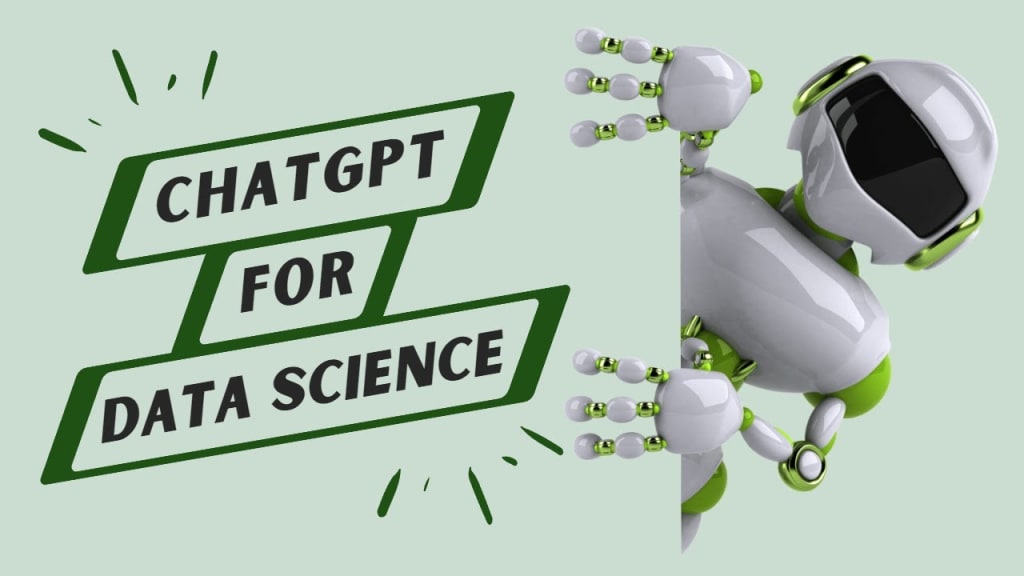Should Data Scientists Learn to Use ChatGPT? – Know the Top Benefits and Challenges
In recent years, artificial intelligence (AI) has risen to prominence in the era of data science.

Natural language processing (NLP) techniques like ChatGPT are among the most fascinating breakthroughs in this area. The introduction of OpenAI's ChatGPT has taken the world by storm. But does spending time learning ChatGPT make sense, given the abundance of alternative data science tools and methods to become familiar with?
Well yes.
In this article, we'll examine the key benefits and challenges of utilizing ChatGPT as a data scientist and provide helpful tips on how to use it. But first, let's stick to what exactly ChatGPT is.
What is ChatGPT?
ChatGPT is an AI language model developed by OpenAI in Nov 2022. It is a member of the GPT (Generative Pre-trained Transformer) model family, which employs deep learning techniques to produce human-like text. In particular, ChatGPT has been developed to produce conversational responses to user input. However, many people still worry that OpenAI ChatGPT is a threat, when the truth is it is not. Generally speaking, there are many advantages of ChatGPT which we will explore below.
Top Benefits of Using ChatGPT as a Data Scientist
Efficiency
The efficiency of ChatGPT as a data scientist is one of its most significant advantages.
Data scientists can save time when discussing with clients or team members by using ChatGPT's ability to generate natural language responses to user input. Data cleaning, labeling, and summarizing tasks can also be handled by ChatGPT, allowing data scientists to work on more complex tasks.
Improved Communication
ChatGPT can also improve communication between data scientists and customers or other team members. For instance, if a client has a question about a specific data set or study, a data scientist can use ChatGPT to produce an understandable natural language response. This may minimize misunderstandings and guarantee that everyone is on the same page.
New Opportunities
Data scientists can open up fresh opportunities to work on projects involving NLP by learning how to use ChatGPT. This can be especially helpful for data scientists interested in working on projects including chatbots, virtual assistants, or other conversational AI applications.
Top Challenges of Using ChatGPT as a Data Scientist
Limited Control
One of the most challenging parts of using ChatGPT is controlling the output generated by the model. This is because ChatGPT is a generative model that generates answers based on patterns and probabilities acquired from training data. While there are approaches to affect ChatGPT output, like providing prompts or modifying the model's settings, data scientists must be willing to deal with some unpredictability in the model's responses.
Data Bias
Another possible concern with using ChatGPT is that the model might be biased due to the training data it has been exposed to. This is a typical problem with machine learning models, but it can be particularly troublesome with language models like ChatGPT, which, if not adequately controlled, can reinforce inaccurate assumptions or misinformation. Data scientists need to be aware of these problems and take action to address them, for example, by using diverse training data or applying debiasing techniques.
Technical Complexity
It's important to note that using ChatGPT can be technically challenging. Data scientists must be well-versed in NLP and deep learning techniques to use the model efficiently. They may also need to spend much time and money training and optimizing the model for a certain application.
How to Utilize ChatGPT Effectively – Tips
Despite these challenges, there are a number of methods data scientists may use to make good use of ChatGPT:
Tip #1 Understand the Model's Capabilities and Limitations
Data scientists must thoroughly understand the model's capabilities and limitations to use ChatGPT properly. This involves understanding the kinds of responses the model can produce and any biases or limitations it may have based on the training data. By being aware of these elements, data scientists can adjust their use of ChatGPT to particular applications and avoid overly depending on the model for tasks it might not suit.
Tip #2 Provide Clear Prompts and Guidelines
Data scientists should give clear and specific instructions and prompts while utilizing ChatGPT to help ensure that responses are useful. This can involve providing comprehensive examples of the expected responses or adding more context or details to help the model comprehend the user's input. Data scientists may ensure that ChatGPT produces accurate and valuable answers by providing clear instructions.
Tip #3 Monitor and Mitigate Bias
As previously stated, one possible issue with employing ChatGPT is that the model might be biased due to its training data. Data scientists should actively check the model's output for bias and take corrective action if necessary in order to reduce this risk. This can include utilizing various training data, applying debiasing strategies, or manually analyzing and modifying the model's output as necessary.
Tip #4 Continuously Train and Fine-Tune the Model
Data scientists should regularly train and fine-tune the model in response to new data or feedback to ensure that ChatGPT stays effective over time. This can assist in maintaining the model's efficacy for particular applications while enhancing its accuracy and relevance over time. Data scientists may ensure they get the most out of ChatGPT in the long run by consistently investing in the model's training and optimization.
When utilizing ChatGPT, data scientists should keep a few more things in mind besides the methods already described. These comprise:
Tip #5 Balancing Efficiency and Accuracy
Another key consideration when using ChatGPT is finding the right balance between efficiency and accuracy. While the model can generate responses quickly and automatically, there is always a risk of errors or inaccuracies in the output. To optimize the model's performance, data scientists should carefully balance the trade-off between speed and accuracy and adjust their use of ChatGPT based on the specific requirements of each task.
Tip #6 Managing Ethical and Legal Considerations
Finally, it is important for data scientists to carefully manage the ethical and legal considerations associated with using ChatGPT. This may involve developing clear guidelines and policies for using the model or incorporating specialized tools and techniques to mitigate potential biases and ethical concerns. By proactively addressing these considerations, data scientists can ensure that their use of ChatGPT is effective and responsible.
Some of the Tasks that can be done with ChaGPT:
ChatGPT can be used for a wide range of tasks related to natural language processing (NLP), including:
Text Generation - ChatGPT can produce clear, high-quality text in response to commands. This can be applied to several tasks, including growing product descriptions, articles, and automated responses to customer inquiries.
Chatbots - ChatGPT can be used to build chatbots that can converse with users with NLP. When a human-like connection is desired, these chatbots can be utilized for customer service, technical support, and other purposes.
Data Preprocessing - Cleaning Large-scale text data is necessary for data science. This procedure may be effectively automated with ChatGPT, saving data scientists time and work.
Text Summarization - ChatGPT can summarize vast amounts of text, making it easier to read, comprehend, and analyze. Applications like market research, social media monitoring, and news aggregation can all benefit from this.
Language Translation - Text can be translated from one language to another using ChatGPT, making communicating with people in other countries and languages easier.
Sentiment Analysis - ChatGPT can detect whether a text's sentiment is good, negative, or neutral. Applications like market research, customer feedback analysis, and social media monitoring can all benefit from this.
Personalization - According to user behavior or preferences, ChatGPT can personalize content or recommendations. This can be helpful for programs like e-commerce, content recommendation algorithms, or personalized marketing.
Text Classification - Text can be categorized into several categories or topics using ChatGPT, such as content development, fraud detection, or social media monitoring.
Overall, ChatGPT offers many potential uses for data scientists, and its capabilities are limited only by the creativity and skill of those who use it.
Final Remarks
In conclusion, while both benefits and challenges are associated with using ChatGPT as a data scientist, the potential advantages of the model are significant. By following best practices and strategies for effective use, data scientists can leverage ChatGPT to unlock new opportunities for natural language processing, enhance their data science workflows, and deliver more value to their organizations and stakeholders.
So should you learn to use ChatGPT as a data scientist?
Yes. The world is advancing quickly, faster than ever, and we need to keep up on this path of progress and not stay behind others. So learn to use it effectively. On that note, if you are a complete beginner and want to upgrade your knowledge, check out the latest data science certification course and start mastering the skills.
About the Creator
Data science blogger
I am mallikarjun , a data science enthusiast and passionate blogger who loves to write about data science and latest technologies. I always believe in smart learning processes that help people understand concepts better,






Comments
There are no comments for this story
Be the first to respond and start the conversation.